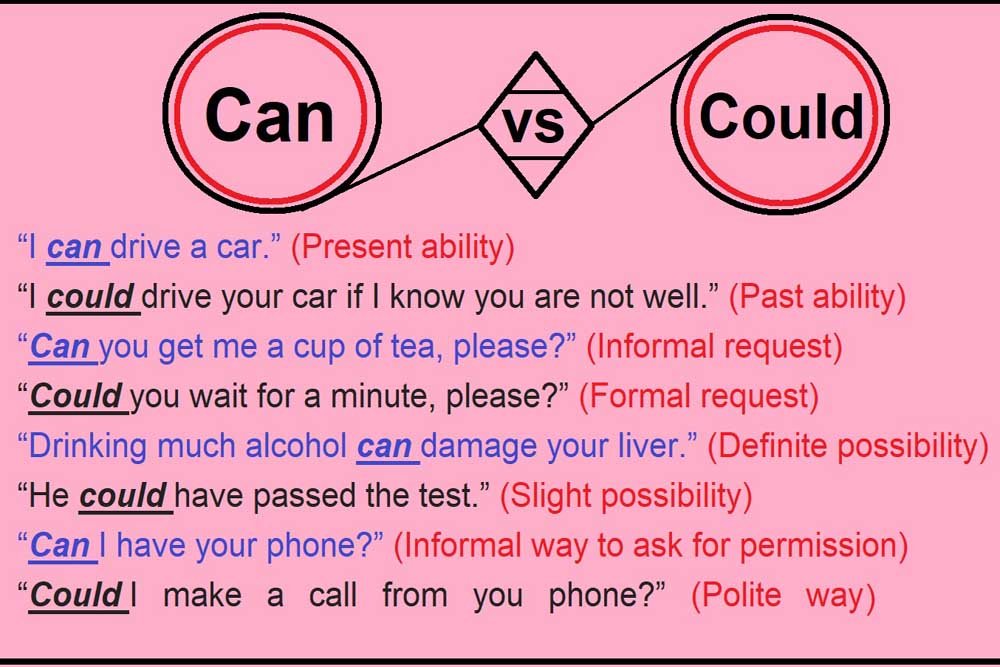Can and could are modal verbs and we use them with main verb to elaborate the function and meaning of the main verb in a sentence. Can means be able to do something or permitted to do in the present situation whereas could refers to the possibility or the ability to do something in the past. Both are used in same way but can is informal while could is used for polite expressions.
- “Can you pass me the book?” (Informal request)
- “Could you give me your book?” (Polite request)
Definitions of Can and Could
In easy wording, ‘can’ means someone or something is able to do or permitted to do something in the present situation and it is used with the 1st form of the verb.
The modal verb ‘could’ is the past participle form of the verb ‘can’ which expresses the past ability of someone or something to do some action in the past.
Uses of can and could
Can is used with main verb to define direct ability of someone in doing something whereas could is used with main verb in the past to denote that someone had the ability to do something in past.
- “I can drive a car.” (Present ability)
- “I could drive your car if I know you are not well.” (Past ability)
Can is used to give and seek permission in informal way whereas could is used to seek permission especially in a polite way.
- “Can I have your phone?” (Informal way to ask for permission)
- “Could I make a call from you phone?” (Polite way to ask for permission)
Both modal verbs are used for request but we use can to make a general/informal request whereas we use could to make a request in a more polite way.
- “Can you get me a glass of water, please?” (Informal request)
- “Could you wait for a moment, please?” (Formal request)
Can is a modal verb that is used to express some definite possibility in the present situation whereas could is used to express a slight possibility in the present situation.
- “Drinking alcohol can damage your liver.” (Definite possibility)
- “You could have passed the examination.” (Slight possibility)
